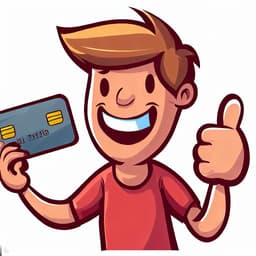Credit card forgiveness programs can provide relief to individuals with disabilities who are struggling with debt. These programs offer various options for debt cancellation and relief, ensuring that disabled individuals have access to financial support and stability. Understanding the different forgiveness programs available is crucial for managing debt effectively and improving financial well-being. Here are key takeaways from the article:
Key Takeaways
- Medical Debt Forgiveness Programs can provide relief to individuals facing high medical bills and financial challenges.
- Credit Card Debt Cancellation programs offer options for debt relief and financial assistance for disabled individuals.
- Debt Relief Programs for 2023 may introduce new regulations and opportunities for individuals with disabilities to manage their debt effectively.
- The Public Service Loan Forgiveness Program is a valuable resource for individuals with student debt, including those with disabilities.
- Understanding and utilizing debt forgiveness programs can help disabled individuals achieve financial stability and peace of mind.
Understanding Credit Card Forgiveness Programs for the Disabled
Medical Debt Forgiveness Programs
Medical debt can be a significant burden, especially for individuals with disabilities. Various programs exist to alleviate this financial strain, offering pathways to forgiveness based on specific criteria. For instance, under Section 501(r)(4) of the Internal Revenue Code, tax-exempt hospitals must have a financial assistance policy (FAP) to aid those in need.
It’s essential to inquire with hospital administration about available medical bill forgiveness programs. Eligibility often depends on factors such as income, household size, and the age of the bill.
Local governments have also stepped up, with cities like New York and Cook County launching initiatives to eliminate or reduce medical debt for their residents. These efforts are complemented by federal proposals like the Medical Debt Forgiveness Act, which seeks to provide more lenient repayment terms and remove certain paid medical debts from credit reports.
To navigate these options effectively, consider the following steps:
- Verify your eligibility for hospital-based forgiveness programs.
- Explore local government initiatives in your area.
- Stay informed about federal legislative changes that may impact medical debt reporting.
Remember, engaging in discussions on platforms dedicated to credit repair and financial management can also enhance your understanding of these programs and improve overall financial literacy.
Credit Card Debt Cancellation
Credit card debt cancellation can provide significant relief for individuals facing financial hardship due to disability. When a credit card debt is forgiven, it means that the creditor has decided not to pursue the collection of the debt, effectively releasing the borrower from the obligation to pay it back.
In certain cases, the forgiven debt may be excluded from taxable income. For instance, if the cancellation occurs during a title 11 bankruptcy case or if the borrower is insolvent immediately before the cancellation. Insolvency is determined when total liabilities exceed the fair market value (FMV) of total assets.
It’s important to understand that not all canceled debts are excluded from income. The IRS requires individuals to report the canceled amount if it does not meet specific exclusion criteria.
For example, consider a scenario where a person is released from a $5,000 credit card debt. If none of the exclusions apply, this amount would typically be reported as income. However, if the person’s total liabilities were $15,000 and the FMV of assets was $7,000 before the cancellation, they would be considered insolvent.
Debt Relief Programs for 2023
As we move into 2023, individuals with disabilities seeking debt relief have several avenues to explore. New legislative efforts and policies are being introduced to ease the burden of medical and credit card debt. Among these, local government initiatives play a crucial role, with cities like Cook County and New York City implementing programs to retire hospital bills for residents.
For those with credit card debt, options such as balance transfer cards with 0% intro APR and variable rates post-intro period can provide temporary relief. It’s essential to understand the terms, such as the duration of the introductory rate and any balance transfer fees involved.
The Federal Trade Commission’s Consumer Advice guide offers valuable insights for creating a debt repayment plan, emphasizing the importance of consolidating loans and seeking fixed rates when possible.
Below is a summary of key debt relief programs and their features:
- Local Government Initiatives: Retire medical bills for residents.
- Balance Transfer Credit Cards: Offer introductory 0% APR and subsequent variable rates.
- Federal Trade Commission Advice: Guides on debt consolidation and repayment planning.
- Public Service Loan Forgiveness: Relief for those with student debt through various programs.
Public Service Loan Forgiveness Program
The Public Service Loan Forgiveness (PSLF) Program remains a beacon of hope for individuals with student debt, particularly those engaged in public service careers. Under this program, qualifying loans may be forgiven after 120 qualifying payments, provided the borrower is working full-time for a qualifying employer.
Eligibility for PSLF is contingent on several factors, including the type of loans, the repayment plan, and the nature of employment. It’s crucial to ensure that all loans are consolidated and that borrowers are enrolled in an eligible repayment plan.
The American Rescue Plan Act of 2021 has brought significant changes to the treatment of student loan forgiveness, particularly for discharges occurring from 2021 through 2025. This act may allow certain borrowers to exclude forgiven amounts from their gross income, alleviating the tax burden.
For a comprehensive understanding of the options available, individuals are encouraged to consult the Federal Trade Commission’s Consumer Advice guide for Getting Out of Debt. This resource can assist in creating a plan to manage and potentially reduce student loan payments.
Conclusion
In conclusion, understanding credit card forgiveness programs for the disabled is crucial for individuals facing financial challenges due to disabilities. These programs offer relief from credit card debt and provide a pathway to financial stability for disabled individuals. By exploring the options available, such as medical debt forgiveness and credit card debt cancellation, disabled individuals can navigate the complexities of debt management more effectively. It is important to stay informed about the regulations and policies that govern these forgiveness programs to make informed decisions about managing debt. Overall, credit card forgiveness programs play a vital role in supporting the financial well-being of disabled individuals and promoting economic empowerment.
Frequently Asked Questions
What is a medical debt forgiveness program?
A medical debt forgiveness program is a program designed to help individuals who are struggling to pay off their medical bills by providing assistance or forgiveness for all or part of the medical debt.
How can I qualify for credit card debt cancellation?
Qualifying for credit card debt cancellation may depend on various factors such as financial hardship, income level, and the specific terms of the debt relief program you are applying for.
What are the debt relief programs available in 2023?
In 2023, there are various debt relief programs available that offer assistance to individuals facing financial challenges, including medical debt forgiveness programs, credit card debt cancellation, and public service loan forgiveness programs.
How does the Public Service Loan Forgiveness Program work?
The Public Service Loan Forgiveness Program is a program that forgives the remaining balance on federal Direct Loans after the borrower has made 120 qualifying monthly payments while working full-time for a qualifying employer.
Are there specific requirements for qualifying for credit card forgiveness due to disability?
Qualifying for credit card forgiveness due to disability may involve providing documentation of the disability, demonstrating financial hardship, and meeting the eligibility criteria set by the credit card forgiveness program.
What steps can I take to get my credit card debt forgiven if I am disabled?
If you are disabled and seeking credit card debt forgiveness, you can start by contacting your credit card issuer to inquire about any forgiveness programs they offer, providing necessary documentation of your disability, and exploring other debt relief options available to you.



